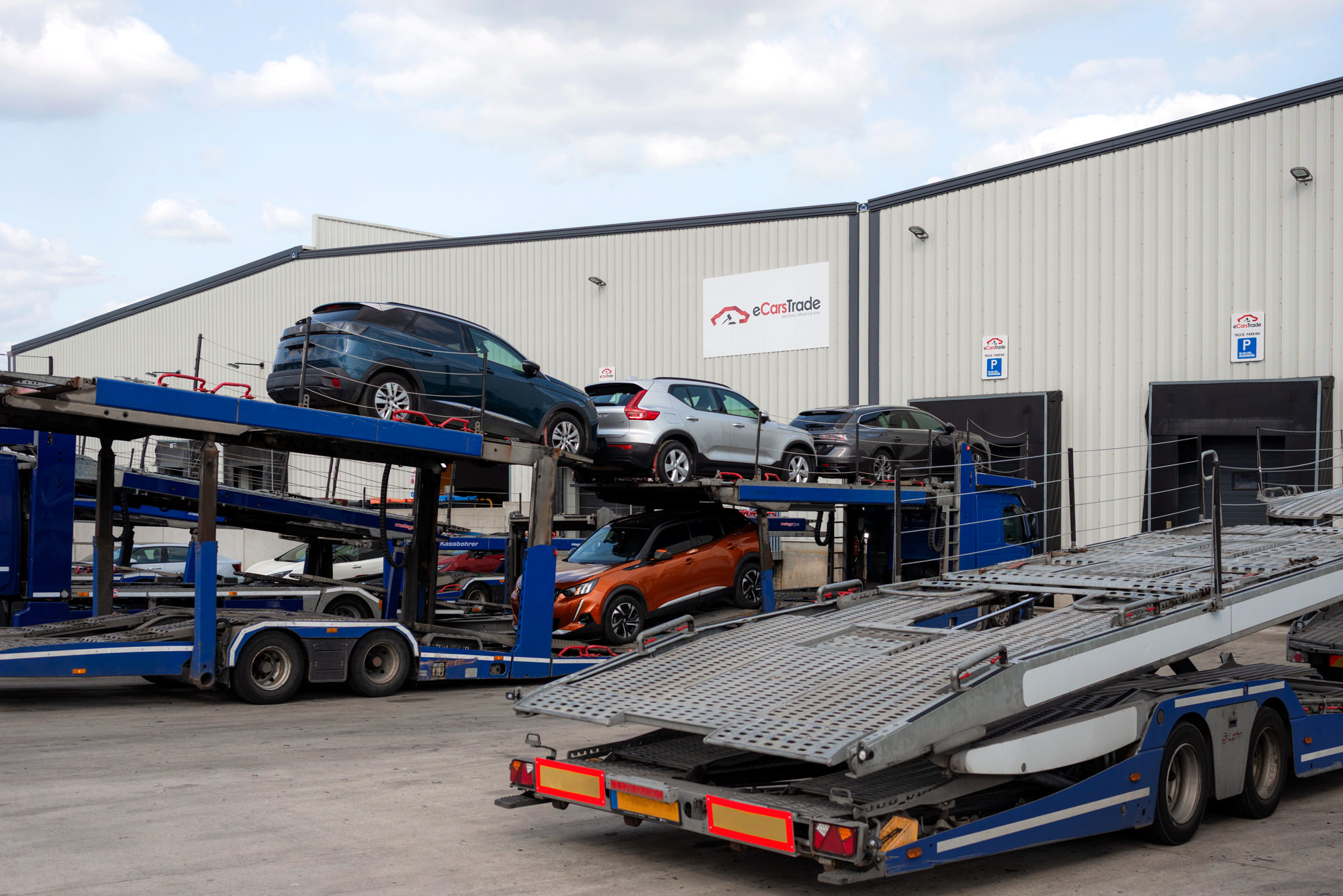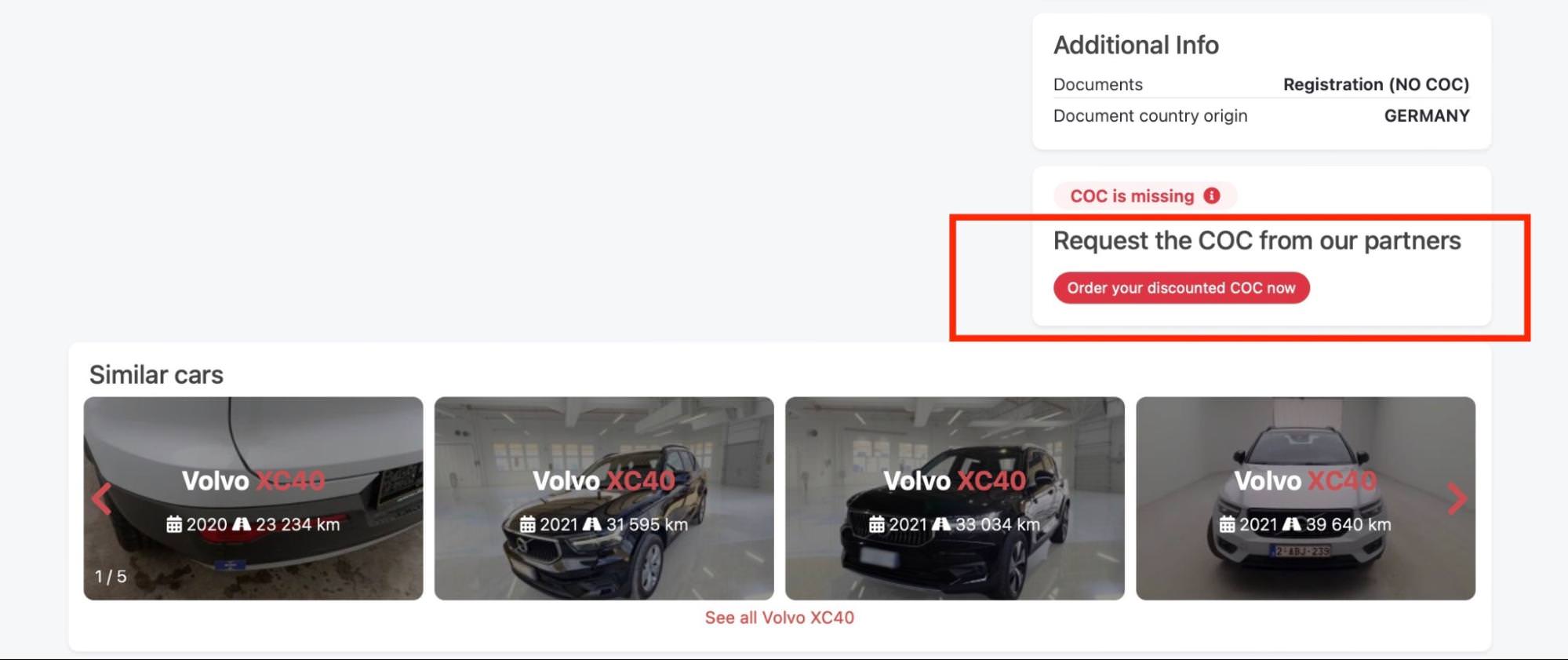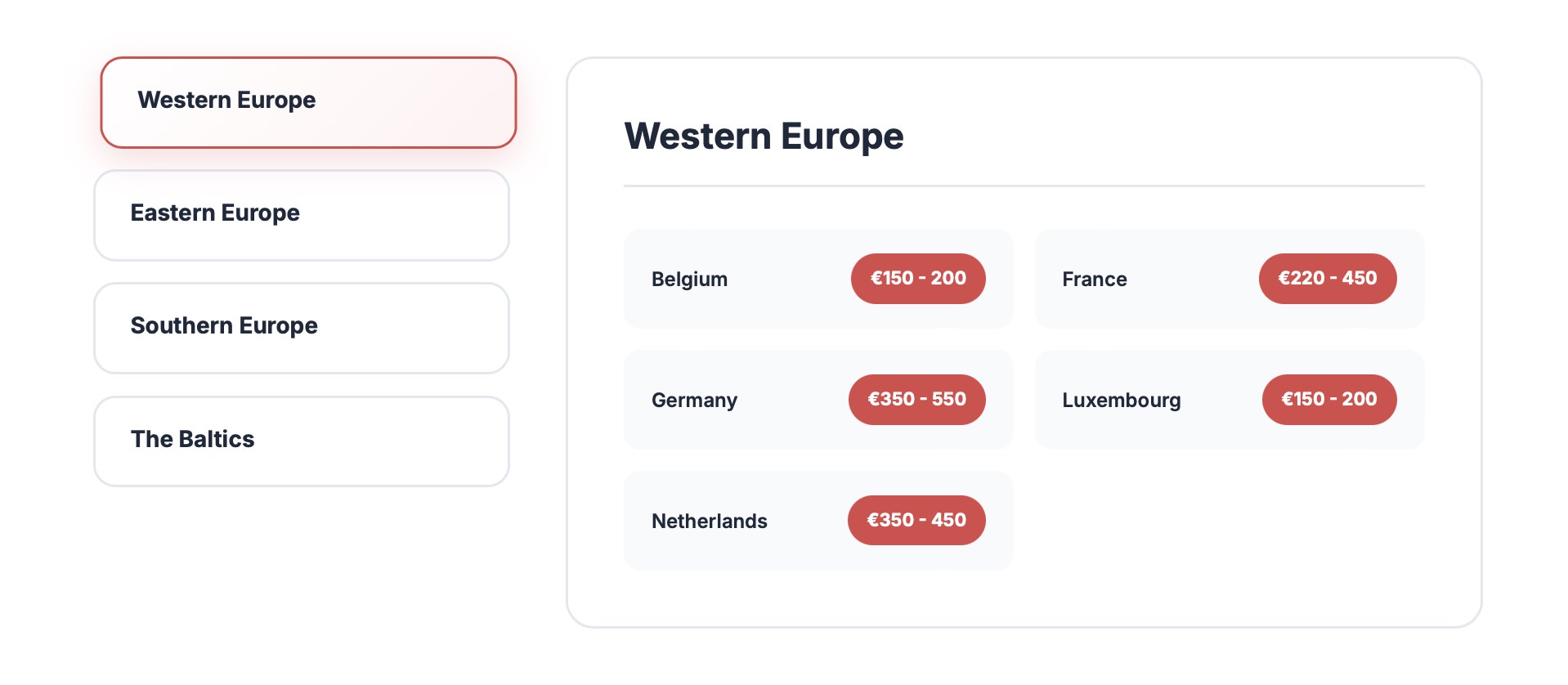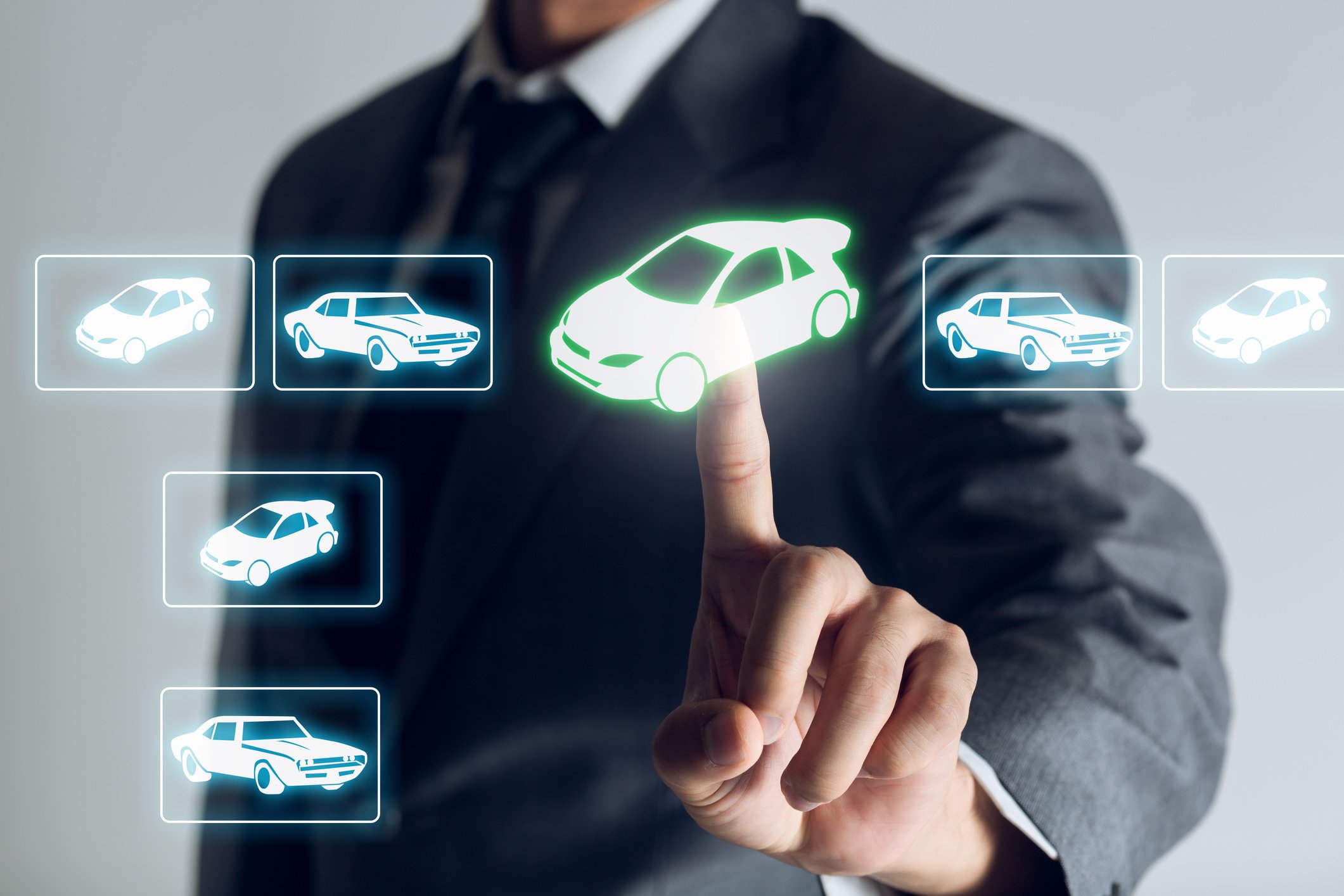- Blog
- Potential Issues and Challenges With Importing Used Cars
Potential issues and challenges with importing used cars
Discover the most common challenges when importing used cars and how to handle them, so you can avoid delays and keep your imports running smoothly.

Importing used cars can be profitable, but it also comes with challenges. Luckily, knowing what issues there might be in the import process lets you prepare on time and avoid unnecessary delays or costs.
So, here’s a quick guide to the most frequent problems traders face, with solutions and resources to help you handle each one.
Paperwork and documentation
A big part of preventable import issues comes from missing or incomplete paperwork and documents. Here are some common ones to watch out for.
Problem #1: Lack of COC
Some used vehicles come with a Certificate of Conformity (COC), but not all. For instance, cars from France or Italy usually don’t have their original COC certificates.
Without a COC, you can’t register a car in most EU countries.
► Solution: Always check if a COC is included when sourcing. On eCarsTrade, cars without the certificate will have a link through which you can order a COC from services like EUROCOC.

► Resources: This article explains what a Certificate of Conformity is, why you need it for registering cars in the EU, and how to obtain one if you don’t have it.
Problem #2: CMR form inconsistencies
Sometimes transport company drivers omit or incorrectly record details on the CMR form when they take the car. This can lead to disputes over damages, delivery delays, or problems with customs clearance.
► Solution: Make sure both your transport partner and your team fill out the CMR form fully and accurately at handover.
► Resources: Use this guide to learn what a CMR form is. You’ll also find detailed instructions on how to fill it in correctly.
Financial and tax calculations
Knowing what taxes apply to your used car purchases helps you plan costs and operate legally, so here are the key calculations to take care of.
Problem #3: Import duties
Import duties are the taxes and fees you pay when bringing a vehicle from abroad, which can include customs duties, excise taxes, and more. These costs differ by country and vehicle type, and not knowing the exact rates can get you unexpected expenses that cut into your profit.
► Solution: Always check the exact import duty rates and rules for your country before buying, so you can price cars accurately and stay profitable.
► Resources: This article guides you through customs fees, VAT, registration tax, and excise duty, explaining how each is applied and where to find the official rates for your market.
Problem #4: Managing country-specific taxation
Every country has its own car taxes. There’s BPM in the Netherlands, eco-sticker rules in Spain and France, motor-vehicle tax in Estonia, and so on. These country-specific taxes take some time getting used to when you first start importing cars.
► Solution: Always research the destination country’s tax rules before importing.
► Resources:
- BPM tax in the Netherlands
- Car taxes in Germany
- Spain DGT Eco stickers
- Fraince Crit’Air
- Estonia Motor vehicle tax
- Car taxes in Spain
Problem #5: VAT calculations
VAT depends on whether the car is considered new or used, and on the type of invoice. So, there’s no single universal rule to follow when paying VAT.
► Solution: Make sure you know the VAT rules for the country you’re importing to and the country you’re buying from. You can also check with local authorities so that you apply the correct rate and avoid unexpected charges.
► Resources: Our guide on VAT will tell you the key information about how it’s calculated, when it applies, and how to handle it when trading used cars across borders.
Logistics and transport
Transporting cars is one of the most important steps in the import process, and problems here can lead to delays and extra costs. We’ve listed the common logistics issues so that you can plan around them.
Problem #6: Shipment delays
Regardless of the cause, any delay in shipment means you receive your cars later and can’t resell them as quickly.
► Solution: Since you can’t always predict the delays, the best thing you can do is to plan for buffer time and consider using our reliable delivery service. For instance, if you wanted to resell a car in three weeks, it’s better to plan for it to arrive in five.
► Resources: Read our guide on how to transport multiple cars within the EU for tips on choosing the right transport method with minimal delays.
Problem #7: In-transit vehicle damages
If a car arrives with new damage that wasn’t noted in the CMR, you may not be able to file claims.
► Solution: Always inspect the car as soon as it arrives and note any damage on your copy of the CMR immediately. This is the only way to support a claim with the transport company or auction platform.
Problem #8: Unexpected transport costs
Hidden costs during transport can make a previously affordable car much more expensive.
► Solution: Before deciding on a transport method or company, you should confirm the full price in writing and check what’s included in the service.
With eCarsTrade delivery service, you’ll get fixed prices with no surprises, regardless of where in the EU you are.

You can also request a custom quote for multiple cars, non-standard vehicles like SUVs, EVs, or vans.
Problem #9: Unreliable transport provider
Poor logistics partners can cause delivery delays, paperwork problems, or even damage to vehicles.
► Solution: Use reputable providers, like eCarsTrade delivery service, to keep your imports smooth.
Technical and compliance standards
Technical and compliance standards vary by country, so check requirements like emissions and roadworthiness before importing cars.
Problem #10: Compliance with emission standards
If your cars don’t meet EU emission standards, the registration may be rejected or you may have to pay penalties for high-emission vehicles.
► Solution: You should check the car’s emission standard before buying, and make sure it meets the rules in the destination country. That way, you’ll also avoid car homologation issues in the EU.
► Resources: Our guides explain the NEDC and WLTP standards in detail. You can also find info on the current CO₂ emission restrictions for cars in the EU.
Problem #11: Roadworthiness certification
Some countries require a roadworthiness certificate before you can register a car. Without it, the car can’t be legally used.
► Solution: Confirm if your country requires a roadworthiness certificate and secure it before arranging a sale.
► Resources: Here you can learn what a roadworthiness certificate is, what it consists of, and see examples from different EU countries.
EV complexities
Electric vehicles come with specific requirements that differ from traditional cars. Knowing these in advance will help you avoid mistakes when importing and reselling EVs.
Problem #12: Verifying battery State of Health
EV batteries don’t degrade too much over time. Still, without a reliable SOH check, you can’t assess the true value of the car.
► Solution: Ask if a SOH certificate is available or order one yourself before buying.
► Resources: Learn what a battery State of Health certificate is, how it’s measured, and why it matters when buying or selling used EVs. You can also read more about battery degradation in used EVs.
Problem #13: Battery lease obligations
Some EVs are sold with leased batteries, which adds ongoing costs and requires separate contracts.
► Solution: Always confirm if the battery is owned or leased, and review the lease terms before buying.
► Resources: This article explains how battery leases work and what costs you can expect.
Problem #14: Battery passports
Battery passports aren’t mandatory in the EU yet, but from 2027 all EV and industrial batteries over 2 kWh will need one. The passport will follow the battery for its entire life, and without it, you could run into delays registering or selling EVs.
► Solution: Stay up to date with the latest battery passport regulations so you can be ready when the rules take effect.
► Resources: Our guide explains what an EU battery passport is, when it will be required, and how to handle it when trading used EVs.
Import protocols for various countries
Every country has its own rules for importing used cars, from required documents to specific taxes.
Problem #15: Not knowing local import rules
Import rules vary by country, and missing a step (like a specific document or payment) can delay the import process.
► Solution: Check country-specific guides to prepare the right paperwork and calculate all costs in advance.
|
Region |
Country-specific import guide |
|
Western Europe |
|
|
Northern Europe |
|
|
Central & Southeast Europe |
|
|
|
|
Bidding
Bidding is a key part of sourcing cars, but without the right approach, it’s easy to overpay or miss out on good deals.
Problem #16: Research before bidding
Dealers often bid blindly, which leads to overpaying or missing out on better deals.
► Solution: To avoid unprofitable purchases, you should use all the tools at your disposal to estimate the car’s resale value and total cost before you bid.
► Resources: If you’re bidding through eCarsTrade, read our guide on solving common bidding struggles.
You can also visit our Discovery page to learn how you can use our tools for bid suggestion, estimation prices, and the bid calculator to your advantage.
Problem #17: Missing vehicle history
Without a clear history, you risk buying a damaged or questionable car.
► Solution: Checking the car’s history using the VIN number is the most reliable way to confirm its past ownership, mileage, and accident records.
Also, some cars on eCarsTrade have service history overviews, so you can quickly review past maintenance and repairs before making a decision.
► Resources: Visit our guide on how to read a VIN report to understand what each section means, and check our list of the best VIN decoders for car history to find reliable tools for getting accurate information.
Avoiding potential issues
What you’ve just read is a checklist of as many as seventeen potential issues and challenges related to importing cars.
Now that you’re aware of these, you can work on finding the right tools and resources to handle each of them confidently. We’re sure your next import will go smoothly and bring the results you’re aiming for!
Nasz bogaty asortyment obejmuje różne marki i modele, aby odpowiedzieć na wszystkie Twoje potrzeby, pozyskiwane bezpośrednio od renomowanych europejskich firm leasingowych, firm wynajmu krótkoterminowego i dealerów:
_01JE9WH8CRTMG3B3WDH56WNJHD.png)

